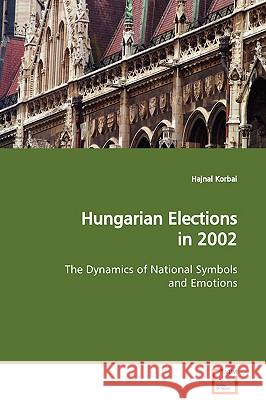Hungarian Elections in 2002 The Dynamics of National Symbols and Emotions » książka
Hungarian Elections in 2002 The Dynamics of National Symbols and Emotions
ISBN-13: 9783639102864 / Angielski / Miękka / 2008 / 68 str.
The Hungarian elections in 2002 serve as delicacy not only for political scientists, but also for all kinds of social scientists. The theory of rational choice is not enough in itself to explain the results of the two rounds. The role of emotions and symbols represented in the theory of symbolic politics seems to be unavoidable in the analysis.There are two common features of the two-round elections all around the world: the participation is higher in the first round, and in the second one people tend to vote for the party that seems to be winning. Contrary to these tendencies in the Hungarian case, although the participation was very high in the first round, it was even higher in the second one, and the party that seemed to be losing the whole election at the end of the first round was the winner of the second one. What happened between the two rounds? Political scientists can explain this phenomenon with a new campaign method which used emotions and national symbols and activated previously uncertain voters. This work presents a case of voting behaviour when people do not have enough information to decide, thus they use their emotions as information.











